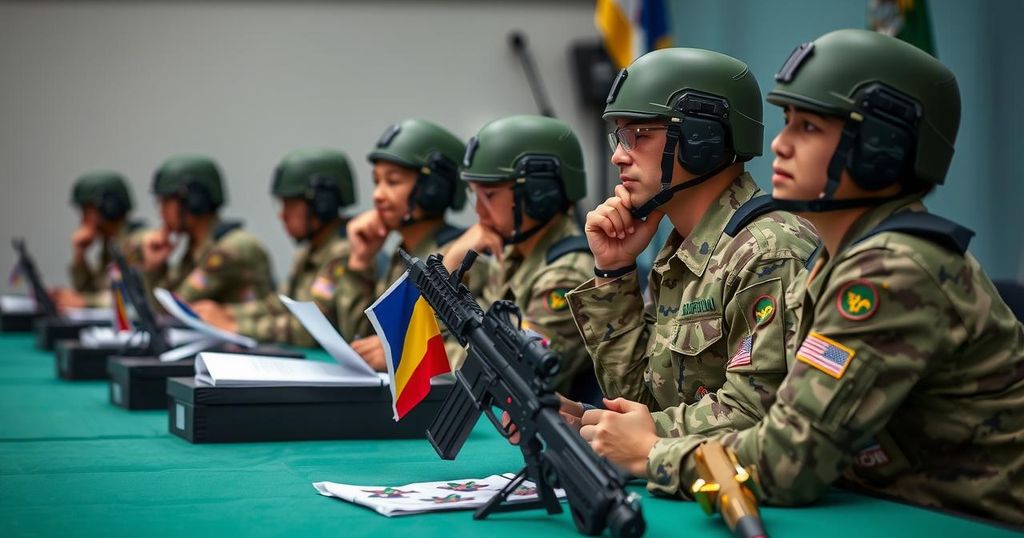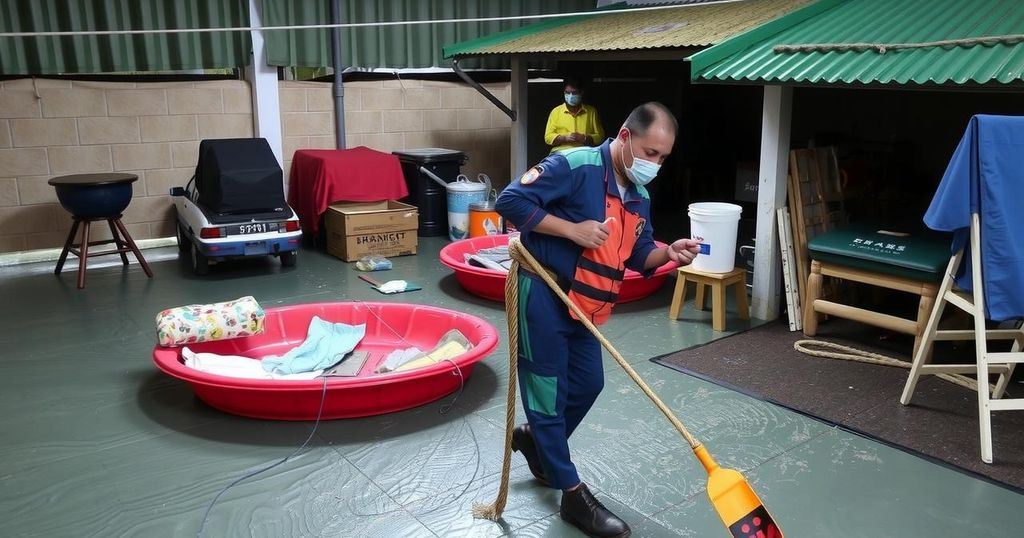Rising Human Trafficking Among Educated Indonesians: Slamet’s Escape from a Cambodian Gambling Ring
Recent reports indicate a troubling rise in human trafficking cases involving educated Indonesian youth, with individuals like Slamet recounting harrowing experiences in Cambodian online gambling rings. Promised lucrative jobs, many find themselves trapped in forced labor, revealing a broader pattern of exploitation. The Indonesian government is undertaking measures to combat trafficking, but ongoing vigilance and collaboration are essential to protect citizens from such predicaments.
In recent years, human trafficking cases have taken a disturbing turn in Indonesia, with an increasing number of educated young individuals being targeted. One such case involves Slamet, an Indonesian man who escaped a forced labor situation in a Cambodian online gambling ring. Following a deceitful recruitment promise of lucrative employment, Slamet found himself trapped in a nightmare, forced to work under the threat of violence and financial exploitation. His harrowing journey sheds light on a broader trend of trafficking affecting educated youth in Southeast Asia, a situation exacerbated by the COVID-19 pandemic.
Slamet’s story began when a recruiter in Malang lured him with the promise of a 15 million rupiah monthly salary to work in Vietnam. However, instead of the anticipated factory job, he was taken to Bavet, Cambodia, where he was compelled to work in an online gambling operation for three months under harsh conditions, including armed guards. Slamet ultimately managed to escape and seek assistance at the Indonesian embassy, but not without enduring significant trauma and financial loss. He reveals the brutal realities faced by many Indonesians caught in similar situations, with a rising number of reports received by the embassy from citizens seeking help.
Recent data underscores the growing issue of trafficking in the region, especially as scammers exploit vulnerable populations during economic downturns. Experts note a significant shift in the profile of trafficking victims, now predominantly young, educated individuals. The Indonesian government, acknowledging the urgency of the situation, has implemented measures to combat trafficking, including collaborations with Cambodian authorities and public awareness campaigns. There remains, however, a persistent need for vigilance and effective strategies to dismantle the networks behind these crimes.
The ramifications of these alarming trends are far-reaching, affecting not only individuals like Slamet but also reflecting deeper systemic issues within labor migration in the region.
Slamet, during a phone interview, expressed his fear, stating, “I’m afraid as the boss in Cambodia is still looking for me.”
The Indonesian embassy indicated a troubling rise in trafficking cases, with several reports of abuse and exploitation surfacing. “Some were handcuffed, electrocuted and beaten,” noted Arina Widda Faradis, a legal aid staff member from Migrant Care. These statements highlight the severe conditions under which many Indonesian nationals find themselves, complicating efforts for their safe return to Indonesia and emphasizing the need for robust protective measures against trafficking.
Slamet’s experience exemplifies the critical challenges faced by many Indonesians abroad, driven to seek opportunities that often lead to dire situations. The alarming trends necessitate continued collaboration and response from both the Indonesian government and international bodies to address the growing incidence of trafficking and ensure the safety and rights of citizens.
The Indonesian Foreign Affairs Ministry and other agencies are committed to improving outreach and protective measures for their citizens. However, it remains imperative for individuals to exercise caution and thoroughly verify job offers before accepting them, particularly those that appear overly favorable. Efforts to strengthen legal frameworks and enhance public awareness continue to be essential in the fight against human trafficking, ensuring that no one, especially the vulnerable, falls victim to such heinous practices once again.
The phenomenon of human trafficking in Southeast Asia, particularly involving Indonesian nationals, has evolved in recent years. Traditionally targeting low-educated individuals for domestic labor or work in the Middle East, trafficking networks have shifted to entice educated youth with promises of high-paying jobs in better economic contexts. This trend has been magnified by the economic impacts of the COVID-19 pandemic, leading to increased vulnerability among jobseekers. As individuals seek employment, they fall prey to deceptive recruitment tactics, often resulting in forced labor under inhumane conditions, particularly in the online gambling sector across Southeast Asia.
The increasing incidence of human trafficking involving Indonesian citizens, particularly the educated youth, highlights a pressing humanitarian crisis. Trafficking syndicates have adapted their strategies, exploiting economic vulnerabilities exacerbated by the pandemic, leading to more sophisticated scams that target higher education individuals. The urgency for effective preventive measures, international cooperation, and heightened public vigilance cannot be overstated, ensuring that such distressing cases are addressed and further victims are spared from similar fates. Continuous efforts from the Indonesian government and NGOs are necessary to tackle the persistent challenges of human trafficking, safeguard citizens, and restore the rights of victims forced into such circumstances.
Original Source: www.channelnewsasia.com




Post Comment